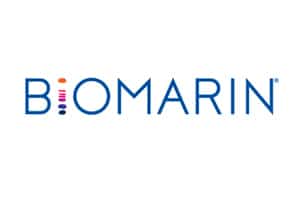
BioMarin has failed to convince an FDA advisory committee that its Kyndrisa therapy for Duchenne muscular dystrophy (DMD) is either safe or effective.
The panel voted 15-2 that a BioMarin’s three trials of Kyndrisa (drisapersen) did not provide enough evidence that it was able to improve the ability of children with DMD to walk, making approval by the FDA by the scheduled deadline of December 27 unlikely.
A key issue for the panel was that only one of two phase II trials revealed an improvement on a six-minute walk test, while a larger phase III trial found a trend toward improvement that was not statistically significant.
Moreover, the committee meeting also highlighted concerns about the safety of the drug, with the FDA reviewer noting in a report that the drug seems to have adverse effects on the kidneys, skin and blood vessels that are worrying “even in the context of an invariably disabling and fatal disease such as DMD.”
DMD typically affects males in childhood and is characterised by severe muscle wasting that in most cases leads to death before the age of 30. Drisapersen is an antisense drug that is designed to cut out a mutated portion of a protein called dystrophin whose expression is impaired in DMD, leading to symptoms.
The FDA reviewer was not however convinced that drisapersen was able to improve dystrophin levels.
BioMarin’s drug is one of three new dystrophin-modifying therapies – designed to restore partial function to the protein – that represent the first attempt to tackle the underlying defect in the disease. At the moment patients with DMD can only be treated physiotherapy and corticosteroids, which can slow down muscle wasting but have significant side effects.
A rival therapy from Sarepta Therapeutics called eteplirsen, which has a similar ‘exon-skipping’ mode of action to drisapersen, is due to come in front of the advisory committee in January, and it remains to be seen whether the drisapersen setback will be a hindrance or an opportunity.
Sarepta is seeking approval of eteplirsen with a smaller database – two small phase II trials – but they show more consistent efficacy for the drug and – according to some analysts – it seems to have a cleaner side-effect profile.
Meanwhile, PTC Therapeutics’ small-molecule drug Translarna (ataluren) – already approved in Europe – is also under review by the FDA under a ‘rolling’ license application that is due to complete this quarter. However, like drisapersen Translarna missed its objectives results in a phase III trial which could undermine the application.
Translarna works via a different mechanism known as premature stop codon (PSC) read through and is indicated for DMD cases caused by a ‘nonsense mutation’, a different patient population to the exon-skipping therapies.
In a statement, the US Muscular Dystrophy Association (MDA) acknowledged that the advisory committee “raised a number of questions about the safety and efficacy of the drug.”
The organisation’s chief medical and scientific officer, Valerie Cwik, said: “The possibility of having disease-modifying therapies is something our community desperately needs, and we feel that every option that fits in the benefit-risk framework of the Duchenne population should be made available as quickly as possible.”
“We know that the FDA will exercise its due diligence in considering drisapersen, and MDA and our supporters are hopeful that, if found to be safe and effective, it will become the first of many therapies approved to combat DMD.”
BioMarin acquired rights to drisapersen via its $840m purchase of Netherlands-based company Prosensa in November 2014.




